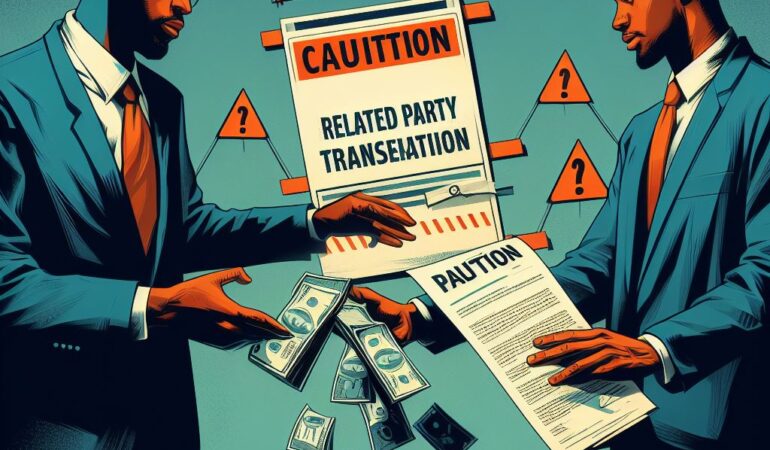Are you considering a related party transaction for your 1031 exchange? Be aware of the risks involved.
In this article, we will explore the potential pitfalls that come with engaging in such transactions. By understanding the lack of arm’s length transactions, the potential for biased valuations, and the increased scrutiny from the IRS, you can navigate this complex landscape with confidence.
Stay informed and make informed decisions to ensure compliance with tax regulations.
Key Takeaways
- Lack of Arm’s Length Transaction
- Risk of biased or inflated valuations
- Increased scrutiny from the IRS
- Limited pool of potential buyers or sellers
Lack of Arm’s Length Transaction
When engaging in a related party transaction for a 1031 exchange, it’s important to be aware of the risks that can arise due to a lack of an arm’s-length transaction. An arm’s-length transaction is one where the parties involved act independently and in their own self-interest, without any undue influence or special relationships.
In a related party transaction, however, there’s a pre-existing relationship between the parties, such as family members or business partners. This can create a potential conflict of interest, as one party may have an advantage over the other.
The lack of an arm’s-length transaction in a related party transaction can result in several risks. Firstly, there’s the risk of overvaluation or undervaluation of the property. Without the independent market forces determining the fair market value, there’s a higher likelihood of one party benefiting at the expense of the other. This can lead to tax consequences, as the IRS requires the fair market value to be accurately reported.
Secondly, there’s the risk of non-compliance with the IRS regulations. The IRS closely scrutinizes related party transactions to ensure that they meet the requirements of a valid 1031 exchange. If the transaction is deemed not to be conducted at arm’s length, it may be disqualified, resulting in the loss of tax benefits.
Potential for Biased or Inflated Valuations
To continue discussing the risks in related party transactions for 1031 exchange, it is important to address the potential for biased or inflated valuations. When parties involved in a 1031 exchange have a personal relationship or financial interest, there is a risk of valuations being influenced in favor of one party. This can result in an unfair exchange of property values and could potentially lead to tax consequences for both parties involved.
One way to mitigate this risk is by obtaining an independent appraisal from a qualified and unbiased professional. By relying on an objective valuation, both parties can ensure that the exchange is fair and in compliance with IRS regulations.
Another strategy is to include a provision in the transaction agreement that requires the parties to agree on a third-party appraisal if there is a significant disagreement in valuations. This can help prevent any potential conflicts of interest and ensure a fair and accurate valuation.
The table below provides an overview of the potential risks and mitigation strategies in related party transactions for 1031 exchange:
| Potential Risks | Mitigation Strategies |
|---|---|
| Biased valuations | Obtain independent appraisals |
| Inflated valuations | Include provision for third-party appraisal |
| Unfair exchange of property values | Ensure compliance with IRS regulations |
Increased Scrutiny From the IRS
You should be aware that the IRS will increase its scrutiny of related party transactions for 1031 exchange, especially in cases where biased or inflated valuations are suspected. The IRS is concerned about the potential for abuse and tax evasion in related party transactions. They’re particularly interested in ensuring that the values assigned to the properties involved in the exchange are fair and accurate.
The IRS has the authority to review and challenge related party transactions to ensure compliance with tax laws. They may request additional documentation and evidence to support the valuations claimed by the parties involved in the exchange. This increased scrutiny is aimed at preventing taxpayers from artificially inflating or deflating the values of properties to gain tax advantages.
To mitigate the risk of IRS scrutiny, it’s important to ensure that the valuations of the properties involved in the exchange are based on objective and reliable methods. It’s recommended to obtain independent appraisals from qualified professionals to support the valuations. Maintaining detailed records and documentation of the transaction will also help demonstrate the legitimacy of the exchange.
Limited Pool of Potential Buyers or Sellers
There is a potential risk of a limited pool of potential buyers or sellers in related party transactions for 1031 exchange. When engaging in a related party transaction, you may find that the number of interested parties is significantly reduced. This can be attributed to the fact that related party transactions involve individuals or entities who have a pre-existing relationship, such as family members, business partners, or affiliates. As a result, the pool of potential buyers or sellers is inherently smaller, limiting your options and potentially affecting the outcome of the exchange.
To better understand the impact of this risk, let’s consider the following table:
| Pros of Related Party Transactions | Cons of Related Party Transactions |
|---|---|
| Convenient and efficient | Limited pool of potential buyers/sellers |
| Familiarity with the counterparty | Increased risk of conflicts of interest |
| Potential for favorable terms | Potential scrutiny from the IRS |
This table highlights the trade-offs associated with related party transactions. While there may be certain benefits, such as convenience and familiarity, it is important to recognize the potential drawbacks, including the limited pool of potential buyers or sellers. It is crucial to carefully evaluate the risks and benefits before proceeding with a related party transaction, and to ensure that the transaction is conducted in compliance with all applicable regulations and guidelines.
Compliance With Complex Tax Regulations
Navigating the complex tax regulations is crucial when engaging in related party transactions for a 1031 exchange. Compliance with these regulations ensures that the exchange qualifies for tax deferral and avoids potential penalties or disqualification.
One of the key tax regulations to consider is the requirement for a bona fide business purpose in related party transactions. The Internal Revenue Service (IRS) scrutinizes these transactions closely to ensure that they aren’t solely motivated by tax avoidance. It’s essential to establish a legitimate business purpose, such as consolidating operations or improving efficiency, to satisfy this requirement.
Another important regulation to comply with is the arm’s length standard. This standard ensures that the transaction is conducted as if the parties involved were unrelated and acting in their own best interests. It requires that the terms and conditions of the transaction are fair and reasonable, reflecting the market value of the property. Failure to meet this standard may result in the disqualification of the exchange.
Additionally, documentation is crucial in demonstrating compliance with tax regulations. Detailed records, including financial statements, appraisals, and transaction agreements, should be maintained to support the legitimacy of the transaction and the rationale behind it.
Frequently Asked Questions
How Do Related Party Transactions Impact the Overall Integrity of a 1031 Exchange?
Related party transactions can impact the overall integrity of a 1031 exchange by introducing conflicts of interest and potential for abuse. These risks can undermine the fairness and legitimacy of the exchange process.
What Are Some Potential Consequences of Not Conducting an Arm’s Length Transaction in a 1031 Exchange?
Not conducting an arm’s length transaction in a 1031 exchange can lead to potential consequences. You risk violating IRS regulations, facing penalties, and losing the tax benefits of the exchange. Stay cautious and compliant.
How Can Biased or Inflated Valuations in Related Party Transactions Affect the Tax Implications of a 1031 Exchange?
Biased or inflated valuations in related party transactions can have significant tax implications for your 1031 exchange. It is important to ensure that the valuation is fair and accurate to avoid potential risks and consequences.
What Specific Actions or Factors Might Trigger Increased Scrutiny From the IRS in Related Party Transactions Within a 1031 Exchange?
To trigger increased scrutiny from the IRS in related party transactions within a 1031 exchange, be cautious of actions like underreporting, overvaluation, or unusual terms. These can raise red flags and lead to potential audits.
Are There Any Strategies or Best Practices to Overcome the Limited Pool of Potential Buyers or Sellers in Related Party Transactions for a 1031 Exchange?
To overcome the limited pool of potential buyers or sellers in related party transactions for a 1031 exchange, consider diversifying your network, reaching out to industry contacts, and utilizing online platforms to expand your options.




